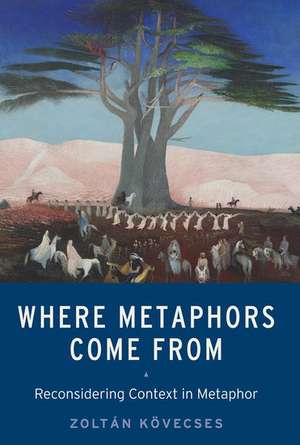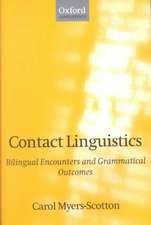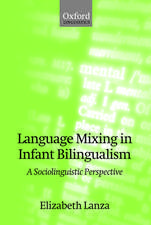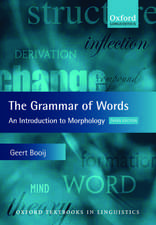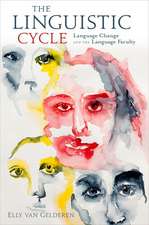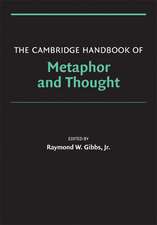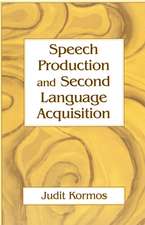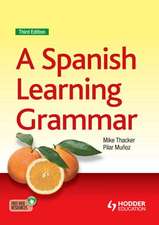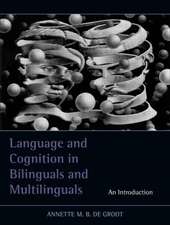Where Metaphors Come From: Reconsidering Context in Metaphor
Autor Zoltán Kövecsesen Limba Engleză Paperback – 9 feb 2017
| Toate formatele și edițiile | Preț | Express |
|---|---|---|
| Paperback (1) | 290.96 lei 31-37 zile | |
| Oxford University Press – 9 feb 2017 | 290.96 lei 31-37 zile | |
| Hardback (1) | 591.12 lei 31-37 zile | |
| Oxford University Press – 12 mar 2015 | 591.12 lei 31-37 zile |
Preț: 290.96 lei
Preț vechi: 330.94 lei
-12% Nou
Puncte Express: 436
Preț estimativ în valută:
55.67€ • 58.29$ • 46.07£
55.67€ • 58.29$ • 46.07£
Carte tipărită la comandă
Livrare economică 26 martie-01 aprilie
Preluare comenzi: 021 569.72.76
Specificații
ISBN-13: 9780190656713
ISBN-10: 0190656719
Pagini: 232
Dimensiuni: 155 x 231 x 15 mm
Greutate: 0.34 kg
Editura: Oxford University Press
Colecția OUP USA
Locul publicării:New York, United States
ISBN-10: 0190656719
Pagini: 232
Dimensiuni: 155 x 231 x 15 mm
Greutate: 0.34 kg
Editura: Oxford University Press
Colecția OUP USA
Locul publicării:New York, United States
Recenzii
As a discipline, linguistics has many theories about how metaphors shape and are shaped by common experiences and culture. Kövecses expands on traditional conceptual metaphor theory by adding the element of context to the mix... He provides good examples from a variety of contextual and cultural situations and includes several chapters on the cognitive aspects of linguistic humor.
This newest addition to the Kövecses canon will stand as one of his most engaging and conclusive works. Thus, it is highly recommended for all metaphor researchers and scholars. For a broader readership, the book is engaging as well as pedagogical. Thus, it is highly recommended as a fine overall introduction to the cognitive linguistics of metaphor and as an exceptional overview of the important roles of culture, history, and of course, context in figurative communication.
The cognitive theory of metaphor has certainly shown that it is a thriving framework. The many branches it has developed over the last two decades are a safe indicator of its vitality and prosperity, and Zoltan Kovecses has contributed significantly to its growth.
This newest addition to the Kövecses canon will stand as one of his most engaging and conclusive works. Thus, it is highly recommended for all metaphor researchers and scholars. For a broader readership, the book is engaging as well as pedagogical. Thus, it is highly recommended as a fine overall introduction to the cognitive linguistics of metaphor and as an exceptional overview of the important roles of culture, history, and of course, context in figurative communication.
The cognitive theory of metaphor has certainly shown that it is a thriving framework. The many branches it has developed over the last two decades are a safe indicator of its vitality and prosperity, and Zoltan Kovecses has contributed significantly to its growth.
Notă biografică
Zoltán Kövecses is Professor of Linguistics in the Department of American Studies at Eötvös Loránd University.
